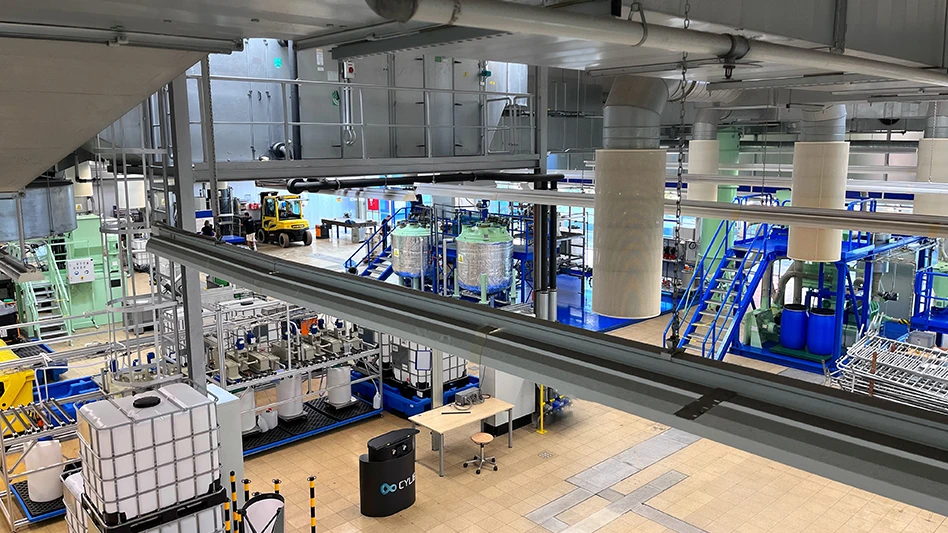
Photo courtesy of Cylib GmbH
Backers of a 30,000-ton-per-year capacity electric vehicle (EV) battery recycling facility held a groundbreaking ceremony in Dormagen, Germany, at the future site of the plant, to be operated by a newly created company called Cylib GmbH.
The groundbreaking in Dormagen took place about one year after the commissioning of a pilot line established by the company in Aachen, Germany.
The company credits a recent financing round, which it calls the largest in European battery recycling to date, with helping it acquire a 236,000-square-foot brownfield site at an industrial park operated by Currenta.
“Our goal is to become Europe’s leading sustainable chemical park," Currenta CEO Tim Hartmann says. The new industrial move in battery recycling and our shared commitment to the Dormagen ecosystem perfectly align with our strategy.”
The site is expected to begin operations in 2026 with an annual recycling capacity of around 30,000 tons of end-of-life batteries.
Cylib says its proprietary process has been designed to recover all elements from lithium-ion batteries, implementing a water-based lithium and graphite recovery process for production scrap and black mass.
The project’s backers, which include automaker Porsche and components maker Bosch, also tie the plant’s future to the European Union Critical Raw Materials Act (CRMA), saying Cylib plays a "significant role" in being able to urban mine and supply seven of these strategically critical raw materials, including lithium, graphite, nickel and cobalt, domestically in the EU.
“Battery recycling is pioneering the circular economy, proving that economic success is compatible with reduced environmental impact,” Cylib CEO and co-founder Lilian Schwich, Ph.D., says.
The EU also mandates the integration of minimum percentages of recycled materials into new batteries, while a battery extended producer responsibility (EPR) system mandates that all battery manufacturers, distributors and owners are wholly responsible for the collection, recycling and disposal of end-of-life batteries.
“Cylib reaching industrial scale production will be a key driver in building a robust European battery infrastructure,” Schwich says.
Paul Sabarny, chief technology officer and co-founder of Cylib, says the plant’s location within what is planned as a wider chemical industry-focused park located between the industrial cities of Düsseldorf and Cologne will provide efficient connections and logistics via rail, air, road and waterways and offer Cylib significant advantages in terms of speed on our path to large-scale industrialization.
“We will leverage the potential of the ecosystem at Chempark Dormagen to make our sustainable products globally accessible,” says Gideon Schwich, Ph.D., chief operating officer and co-founder of Cylib.
Get curated news on YOUR industry.
Enter your email to receive our newsletters.
Latest from Recycling Today
- Unifi launches Repreve with Ciclo technology
- Fenix Parts acquires Assured Auto Parts
- PTR appoints new VP of independent hauler sales
- Updated: Grede to close Alabama foundry
- Leadpoint VP of recycling retires
- Study looks at potential impact of chemical recycling on global plastic pollution
- Foreign Pollution Fee Act addresses unfair trade practices of nonmarket economies
- GFL opens new MRF in Edmonton, Alberta






